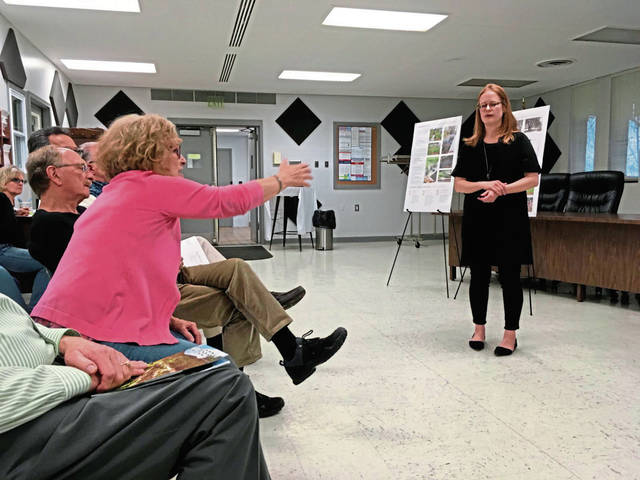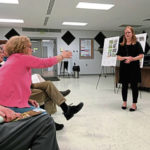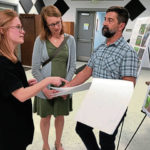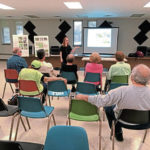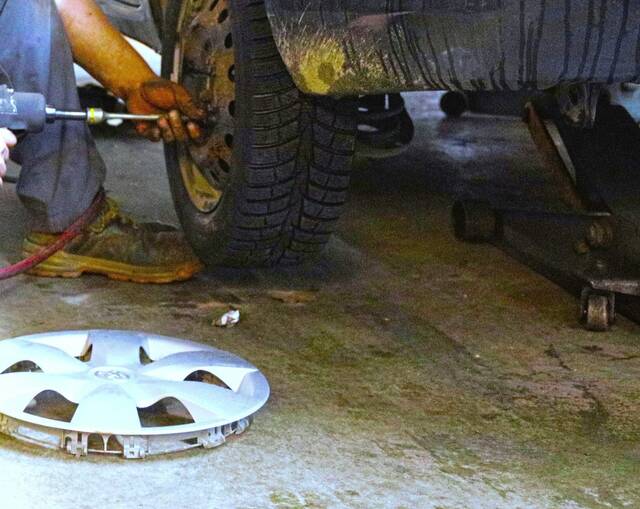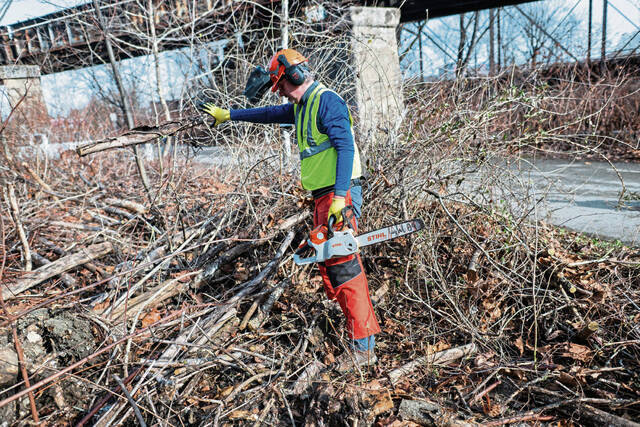There is a plan to speed up construction of two rain gardens in Harrison that are designed to help control stormwater runoff.
They were unveiled Wednesday at a meeting at the municipal building.
The first and smaller of the two will be built this year on the grounds of Highlands Middle School. Construction is expected to be done in June, after the school year ends, said Jeff Bergman, director of community forestry with the Western Pennsylvania Conservancy.
The second and larger project on Burtner Road at Pleasantville Road is just an idea at this point.
Between $150,000 and $200,000 would be needed for its design. Construction would cost another $500,000 to $600,000, Bergman said.
It would be deeper than the middle school garden and able to accept and treat more water from a larger area, said Nina Chase, owner of Merritt Chase, a landscape architecture and urban design firm.
Getting the construction drawings would help with getting the money to build it, Bergman said.
The project, on property belonging to PennDOT across from the historic Burtner House, would also serve as a gateway to Harrison.
The middle school garden is part of a $125,000 project funded by a grant from The Pittsburgh Foundation. The entire township was analyzed, and the middle school grounds and the Burtner Road site were identified as the two best locations for rain gardens, Chase said.
The visibility of both locations is part of why they were chosen.
The middle school site will include a serpentine path and seating and will be able to be used for educational purposes, she said.
The project also includes planting trees and an inventory and analysis of trees within the township’s public rights of way.
The inventory found more than 700 trees of 60 species in public places such as streets and parks, said Brian Crooks, a forester with the conservancy.
Maples were dominant, and for 48 species there were 10 or less individual trees. Most are in the southern end of the township.
Their benefits are valued at more than $123,000. That includes lower energy costs, reduced carbon in the atmosphere, improved air quality, intercepting stormwater and aesthetic benefits.
For some species, only one or two trees were found, Crooks said. The township could benefit from a greater diversity of trees, and he suggested planting less common ones.
“Really, you can never have enough trees,” Crooks said. “Plant as much as you can.”


